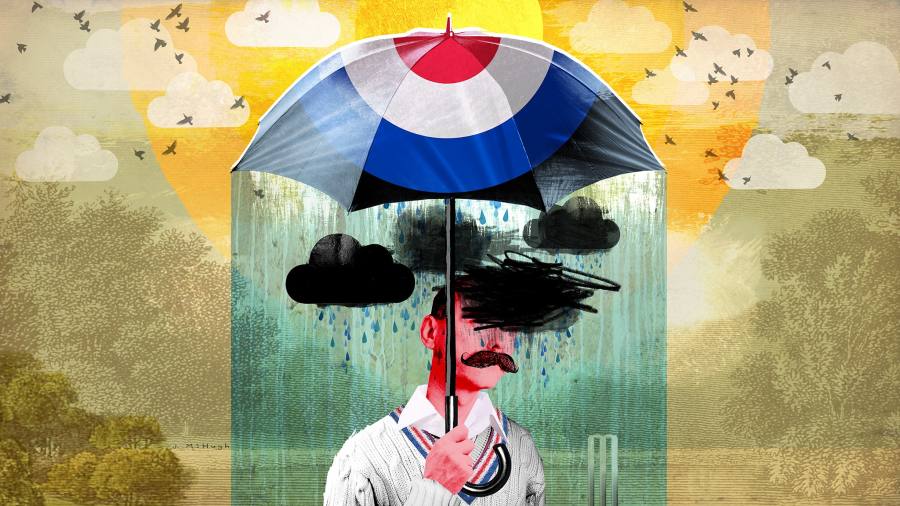
Asked by a sceptical reporter whether his “Bazball” strategy will work against Australia in the Ashes, England cricket captain Ben Stokes was blunt. “That’s the English mentality”, he retorted, “of turning something into a negative straight away”. Stokes has transformed his team’s performance with his positive mindset. He may have something to teach a nation that is mired in gloom.
We Brits used to be associated with the stoicism of “Keep calm and carry on”. Now we see every new headline about strikes, mortgages or crumbling bridges as yet more evidence of terminal decline. There is no wishing away the multitude of challenges we face after Brexit, Covid and the machinations of terrible governments. My own stock-in-trade is raging against our myriad failures. But I fear that our national despondency is becoming a trap.
Mention that we are the sixth-largest economy in the world, and you’ll be met with a bitter: “we used to be the fifth”. Remark on our global successes in film and TV, and you’ll hear: “they always cast us as the villains”. The other day, trying to find a reason to be cheerful, I said to a friend that at least our kids don’t fear being gunned down at school as they do in America. “Well”, she said darkly. “At least their schools aren’t falling down”.
We Brits have always loved a heroic failure: the retreat from Dunkirk, the Charge of the Light Brigade immortalised by Tennyson. Unfortunately, our recent mistakes are just embarrassing, not heroic. We see families being crippled by what looks like a unique wage-price spiral. Our self-image of dogged resilience, forged in the Blitz, is giving way to what pollster James Kanagasooriam calls a self-reinforcing pessimism, with fewer and fewer people believing that life will get better.
When international investors and executives express doubts about the UK’s future, Brits in the room tend to nod along, apologising that things are so bad. At one private dinner recently, a bunch of business people shared bleak predictions about the country until a wealthy American barked: “what the hell is wrong with you guys?” He has lived and worked in London for years, he said, because “it’s still the best city in the world”. At a lunch event, Oxford’s Professor of Medicine Sir John Bell listed the UK’s extraordinary advantages in life sciences, then urged his audience to seize the moment, quoting his fellow Canadian Wayne Gretzky: “skate to where the puck is going, not where it has been”.
Something is wrong when our old allies are telling us to get a grip. The government is firefighting, reluctant to risk anything that could worsen the public finances. But its projection of prudence rather than hope is exacerbating strikes in the NHS, whose staff need to believe that something better lies ahead. It is reinforcing apathy in Whitehall, which has put up with so many changes of direction in the past seven years that it has lost faith. Public and private sector leaders alike are battling what sounds like “quiet quitting”: staff whose incomes were protected in Covid, now fed up and doing the minimum.
With the departure of Boris Johnson from the stage, it is time to dust ourselves off and start focusing on the positives. Our institutions didn’t crumble under Johnson and Liz Truss; they triumphed over them. While America’s next election looks like being a choice between two old men, one of them a charlatan, ours will be between two sensible, if slightly dull, candidates. And there is a batch of impressive, moderate candidates standing for both main parties at the next election, who will improve parliament even as the rest of us have become cynical.
Britain also has its first Asian prime minister — and his ethnic identity is simply not an issue. In most countries, that would be remarkable. Here, we don’t even celebrate it. We beat ourselves up over racism — and there is certainly more work to be done there. But in a recent poll by the think-tank British Future, 80 per cent of ethnic minority respondents say that Britain is a better country for minorities to live in than America, Germany or France. The debate about immigration often focuses on welfare benefits, but a much bigger factor is the desire to come to a vibrant, tolerant country.
We can’t shirk the truth of our situation. But we can tell the positive as well as the negative stories. The Oxford/AstraZeneca Covid vaccine was distributed at cost to developing countries. The Oxford Recovery trial discovered four treatments, including dexamethasone, which have saved millions of lives. Britain is a services superpower, and well-placed in emerging industries like AI.
We are still a generous nation. Within days of the Ukraine war breaking out, 150,000 British families had offered to house Ukrainian refugees. That outpouring of goodwill is rarely mentioned. Yet it is consistent with the community spirit we saw in the first lockdown, when people made enormous sacrifices to keep each other safe, until the Johnson regime turned everything sour.
We Brits have always had a melancholic streak, preferring Keats to Wordsworth and celebrating DH Lawrence. The Smiths’ “Heaven Knows I’m Miserable Now” couldn’t have been a hit in any other country. Pink Floyd once sang (in “Time”) that “Hanging on in quiet desperation/ Is the English way”. But those of us who stare into the darkness must remind ourselves that we are also the nation of Elton John belting out “I’m Still Standing” at Glastonbury.
If England are defeated in the Ashes, no one will be able to say they didn’t try. “Never give up,” Stokes once said. “It’s never over ’til it’s over.” In other words, there’s still everything to play for.